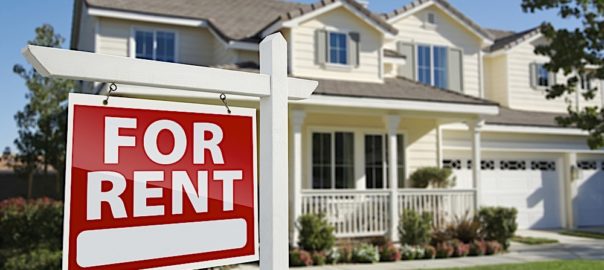5 Tips For Managing Your Own Rental Properties
By JD Esajian on March 9, 2018
From the outside self-managing rental properties looks like a breeze. You find good tenants, give them the keys and simply wait for rent checks every month. As any experienced landlord can tell you this is not exactly how things really go. You are constantly on call waiting for something to happen. Things can be great for five months then out of the blue the furnace stops or there is a disturbance with a neighbor. Most of the problems are easily fixable but you still need to prepare for the unexpected.
Self-managing rentals is the preferred option for many new investors but if you don’t run them like a business you can quickly find yourself behind the eight ball. Here are five areas that every new landlord must be familiar with if they want to be successful.
- Document retention. As we stated, it is important to look at your rental property like it’s own little business. You need to know everything about the property, maintenance costs, tax changes and tenant payment history. If you are not organized you will be constantly scrambling for items when you need them. Documentation such as your lease, insurance and security deposit information must be easily retrieved if there is a dispute. If you can’t find these items or you aren’t sure if they are updated, you can really get yourself in some trouble. Fortunately, document storage and retention no longer require a big filing cabinet or even a dedicated office. You can keep these items on your laptop to view whenever you need them. There is a lot more documentation and filing than you may think. Your ability to stay organized will help make you a better landlord.
- Maintenance. No landlord thinks they will have an issue with their property. They just assume that things will go smoothly for the duration of the lease. The reality is that there are always minor items that need to be done with any rental. When these issues pop up you need to have a team ready to handle them. Every landlord should have a plumber, electrician and general handyman they can call at any time. Cultivating these relationships should start well before you need their services. When something pops up it is too late to start making calls and asking for favors. A clogged toilet may not seem like a big deal to you, but for a tenant with only one bathroom this can literally impact their life. If it is not fixed within 24 hours you will have an upset tenant that will lose confidence in, you and probably wont take care of your property the same. You will be forced to greatly overpay for an emergency service or try to put a short-term band-aid on the problem, making it worse down the road. If you are going to manage the property on your own, you should start assembling a maintenance team today.
- Tenant cycles. In most rentals your tenants will not stay more than one lease. This means that every nine months or so you will be forced to deal with tenant turnover. There are a few important steps you need to know to successfully navigate this tricky time. First, you should not wait to find your next tenant. The closer you wait until the end of the lease the less likely you will find an ideal tenant. Give yourself at least 60 days to deal with showings & applications. Once you find your tenant you still need to get the lease signed and collect your security deposit. Never let a sweet tenant talk you out of bending you rules or changing your policies. During this time, you also need to manage your existing tenant moving out. They should be informed of the expectations on property condition and what they need to do if they want their full security. For a few weeks you will juggle both sides of the tenant cycle but in an instant, it will all be over, and your new tenant will be in place.
- Availability Self-management is largely about availability. If you want to save money and maximize cash flow you need to make yourself available. Unfortunately, tenants don’t always have problems when it is convenient for you. You can expect calls, texts and emails smack dab in the middle of your work day or when you are at dinner with your kids. There are times when you will need to drop what you are doing and go right to the house. Other times you will be back and forth on the phone all morning trying to resolve a seemingly minor problem. Regardless if the issue is insignificant to you it can be a big deal to your tenant and must be handled as soon as possible.
- Late/missed payments. As much as you will try to fight it there will be times when a tenant will be late on their payment. How you handle the week or so they are late can have an impact on the next few months. If you push too hard and call and scream demanding payment you may lose any chance of an amicable solution. On the flip side if you don’t find the cause of the problem your tenant may continue the late payments all the way through the lease. Barring a fire or other emergency in the property an eviction is the worst thing that can happen. Late payments aren’t ideal, but they are much better than trying to get your tenant to leave.
Some rental properties are easier to manage than others but all present at least some kind of challenge. If you manage your own rental you should consider just how proficient you are in dealing with these five important areas.